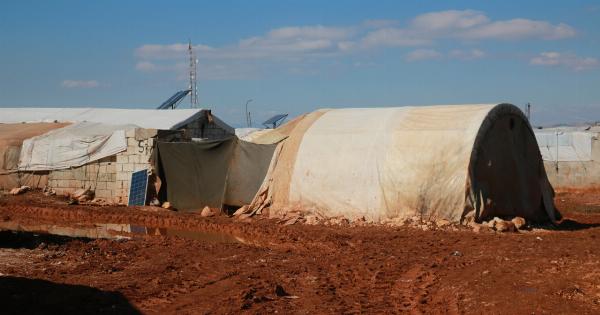As temperatures start to rise during the summer months, we often turn to air conditioners to keep us comfortable.
While air conditioners can provide much-needed relief from the heat, overusing them can lead to a variety of health and environmental concerns.
Increased Energy Consumption
When we rely too heavily on air conditioners, our energy consumption skyrockets. This not only leads to higher utility bills, but it also puts a strain on the environment.
The majority of air conditioners are powered by electricity, which is often generated by coal-fired power plants. These plants emit greenhouse gases and other pollutants, contributing to climate change and poor air quality.
Dry Air
When air conditioners run for extended periods of time, they can dry out the air in our homes. This can lead to a variety of health issues, including dry eyes, dry skin, and respiratory problems.
Dry air can also aggravate existing conditions such as allergies and asthma.
Increased Risk of Illness
When air conditioners are overused, they can become breeding grounds for bacteria and mold. This is especially true if they are not properly maintained or cleaned regularly.
These bacteria and mold can then be circulated throughout our homes, leading to increased risk of illness and respiratory problems.
Environmental Concerns
As mentioned earlier, overuse of air conditioners can put a strain on the environment. In addition to contributing to climate change and poor air quality, air conditioners also rely on refrigerants that are harmful to the ozone layer.
When these refrigerants are released into the environment, they can cause damage to the ozone layer, which is essential for protecting us from the sun’s harmful UV rays.
Increased Noise Pollution
When air conditioners are overused, they can create excessive noise pollution. This can be especially problematic in densely populated areas, where constant noise can lead to stress, anxiety, and other health problems.
Higher Risk of Fire
When air conditioners are overused or not properly maintained, they can become fire hazards. This is especially true if they are plugged into overloaded electrical outlets or if there are faulty wires.
In extreme cases, overused air conditioners can even lead to electrical fires.
Increased Energy Demand
During periods of extreme heat, overusing air conditioners can lead to power outages and blackouts. This is because the increased demand for energy puts a strain on the power grid.
When the power grid becomes overloaded, it can cause widespread outages that can last for hours or even days.
Financial Concerns
Overusing air conditioners can lead to higher utility bills and repair costs. When air conditioners are forced to work harder and run for longer periods of time, they are more likely to break down and require costly repairs.
In addition, high energy consumption can lead to higher monthly bills, putting a strain on household budgets.
Damage to Equipment
When air conditioners are overused, they are more likely to experience wear and tear. This can lead to damage to the equipment, which can be costly to repair or replace.
In extreme cases, overused air conditioners can even fail entirely, leading to the need for a complete replacement.
Conclusion
While air conditioners can provide much-needed relief during hot summer months, overusing them can lead to a variety of health and environmental concerns.
By using air conditioners responsibly and maintaining them properly, we can reduce our energy consumption, protect our health, and preserve the environment.






























